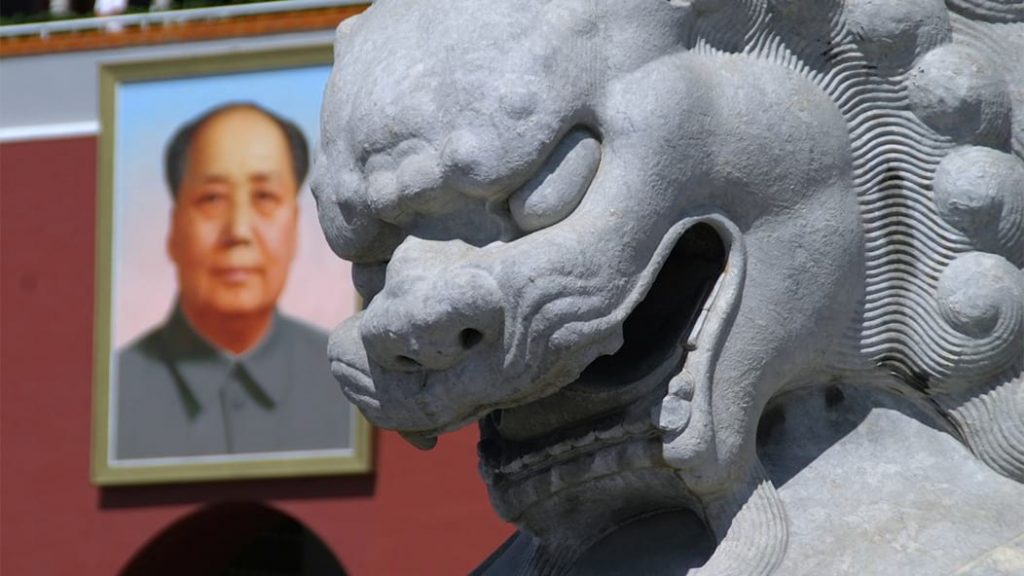How To File US Taxes As American Expat Living In China

Living in China as expat has its own set of challenges, as one of our team members experienced firsthand for a few years. Filing your US tax return from China shouldn’t be a challenge though. Here we explain what American expats in China should know about US taxes. (Read also 11 Expat Tax Tips Before Moving Abroad.)
In this guide to US taxes for Americans in China we cover:
- When Americans in China must file a US tax return
- Foreign Earned Income Exclusion when living in China
- Foreign housing exclusion and deduction for residents in China
- Chinese income tax law changed for 2019
- Reporting Chinese income without a W-2
- How Americans in China benefit from the US China Tax Treaty
- Financial data sharing between China and USA
- Tax filing dates in China and US
- Reporting foreign bank accounts and other financial assets
- Filing US taxes from China securely online
When Americans in China must file a US tax return
As a US citizen, once you meet the income thresholds for US tax filings, you must file a tax return. It doesn’t matter if you receive the income in China or elsewhere outside the US. Even if you don’t owe any tax, you still need to file.
Income thresholds (2019 tax year):
- Single: $12,200 if under age 65; $13,850 if age 65 or older
- Married filing jointly: $24,400 if both spouses under age 65; $25,700 if one spouse under age 65 and one age 65 or older; $27,000 if both spouses age 65 or older
- Married filing separately: $5 for all ages if the spouse files a separate return and itemizes deductions
- Head of household: $18,350 if under age 65; $20,000 if age 65 or older
- Self-employed: net self-employment income of $400 or more.
You can try to prepare your tax return on your own using tax software or work with your US-based tax accountant, but you will likely miss out on expat-specific tax provisions that can save you a lot of money. And mistakes can be costly.
If you don’t have a good US tax accountant yet, check us out. We have helped many clients in China and are familiar with the local documentation. Our entire process is done securely online and we have staff available in your time zone.
Foreign Earned Income Exclusion (FEIE) when living in China
Many expats heard about the Foreign Earned Income Exclusion (FEIE), which allows you to exclude up to $126,500 (in 2024, $130,000 in 2025) from federal income taxes. With China’s high tax rates however it is often more beneficial for expats to use the Foreign Tax Credit instead.
The Foreign Tax Credit (FTC) gives you a dollar-for-dollar credit for taxes you already paid in China. Any unused tax credit carries over into future years.
Using the Foreign Tax Credit instead of the FEIE has other advantages as well. You can still contribute to retirement accounts and potentially claim a child tax credit which you couldn’t do if you excluded all your income under the FEIE
Using the Foreign Tax Credit instead of the FEIE also gives you more flexibility with traveling back to the US.
Especially in light of 2018 tax law changes in China, many expats may try to spend more time outside China. Under this Chinese tax law, foreigners who reside in China for 183 days or more are considered tax residents and subject to Chinese income tax on their worldwide income. More about Chinese income tax (IIT) below.
Our accountants always look at both scenarios, FEIE and Foreign Tax Credit, and tell you which one is more beneficial for your situation.
Foreign Housing Exclusion or Deduction for expats in China
Housing prices are high in most Chinese cities with significant expat populations. The Foreign Housing Exclusion allows expats that are employed abroad to exclude certain housing expenses. You must use the Foreign Housing Exclusion together with the FEIE though.
You can exclude in expenses over 16% of FEIE threshold annually up to a limit that depends on the location. The general limit is 30% of the FEIE threshold, but some high-cost cities have higher upper limits. The yearly cap for 2024 for Beijing is $68,000 and for Shanghai $57,001.
Self-employed expats can take advantage of the Foreign Housing Deduction by deducting certain housing expenses from their gross income. While the Foreign Housing Deduction will lower your overall tax liability, it will not reduce the self-employment tax liability burden.
Qualifying expenses for both the Housing Exclusion and Deduction include:
- Rent
- Utilities (other than telephone charges)
- Real and personal property insurance
- Rental of furniture and accessories
- Repairs
- Residential parking
If your employer pays for housing, this is generally a taxable benefit unless the housing is a requirement of a job (such as in a dangerous area or a university administrator required to be on campus).
Chinese income tax law changed for 2019
Chinese employees should withhold Chinese income taxes (IIT) on a monthly basis. You may also have to pay taxes in China on investment income.
Under the new tax law mentioned earlier, China is expanding the taxation of foreigners residing in China. In the past, the 5-year rule helped to avoid becoming a China tax resident by leaving the country every 5 years for at least 30 consecutive days or 90 cumulative days.
Under the new rule, the old 5-year rule changed to 6 years. However, only leaving China for more than 30 consecutive days now resets the clock. 90 cumulative days no longer saves expats from Chinese income tax on their global income.
Please consult a Chinese tax accountant as the rules for foreigners are complex. We have an English speaking tax firm based in Shanghai that we recommend to clients if you are looking for a Chinese firm.
Reporting Chinese income without a W-2
If you are not employed at a U.S. company and don’t receive a W-2, you can use any other document that shows your income and taxes withheld. Some companies give a summary document that lists everything in both Chinese and English.
You should also receive a stamped document that shows the Chinese taxes you paid. This is not only important for claiming the Foreign Tax Credit. You will also need it when transferring money out of China to prove that you paid the required taxes on it.
How Americans in China benefit from the US-China Tax Treaty
Although there is a lot of standard language in the US-China tax treaty, the treaty does give teachers, professors and researchers a three-year exemption from tax in the state in which they do a temporary assignment. Furthermore, if the person is a trainee or student, they get a $5,000 exemption from tax per year on their salary income.
Financial data sharing between China and USA
Please also be aware that China started in September 2018 to share financial information with other countries. With signing on to the Common Reporting Standards (CRS) China cooperates with 83 countries to share financial account information.
The US is not part of CRS. However, while China has not signed (yet) to FATCA, it has an “agreement in substance” and many of the Chinese banks, including all major international ones, are FATCA compliant and share bank account information.
Tax filing dates in China and US
China’s tax year ends on December 31 and the IIT (individual income tax) return is due March 31, usually without extensions. This means you should have all your Chinese tax documents in time for the April 15th filing deadline. Expats actually have until June 15th to file their US tax return. However, if you have other income in the US you should pay estimated taxes to avoid penalties.
The foreign tax credit for taxes you paid on your Chinese salary can only be used against other income from active sources but not passive income, such as investment and rental income.
Reporting Chinese bank accounts and other financial assets
As US taxpayers anywhere, American expats in China must disclose their foreign bank accounts and potentially other foreign assets if the value exceeds certain thresholds.
You must file a Fincen Form 114 to report foreign bank accounts if the combined value of your foreign accounts exceeds $10,000 during any time of the tax year.
The thresholds for reporting other financial assets are higher and depend on your marital status and where you reside. Those are reported on Form 8938.
Filing US taxes from China securely online
Our expat tax preparation process at Online Taxman is completely online. We start with a expat tax consultation. Knowing the challenges with communication from China, we can also do a consultation via WeChat call if needed (please let us know when scheduling your consultation on our website).
All documents are exchanged via a secure encrypted client portal (VPN required) and documents are signed electronically. With us, you can access expert US tax services from anywhere in the world, including China.
Ready to seek assistance with your US taxes?

Vincenzo Villamena, CPA
Stay Informed With The Online Taxman Newsletter
Your Title Goes Here
Text goes here






